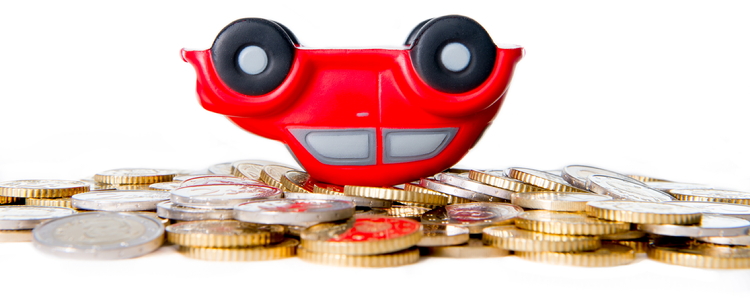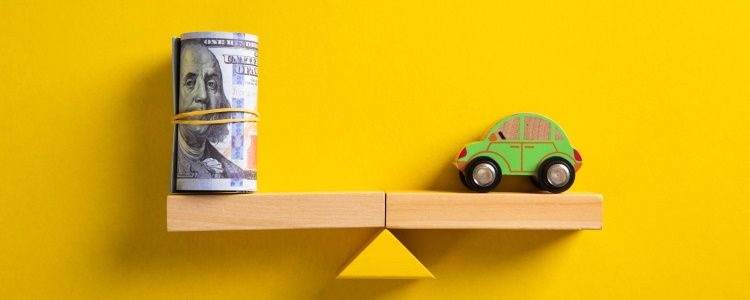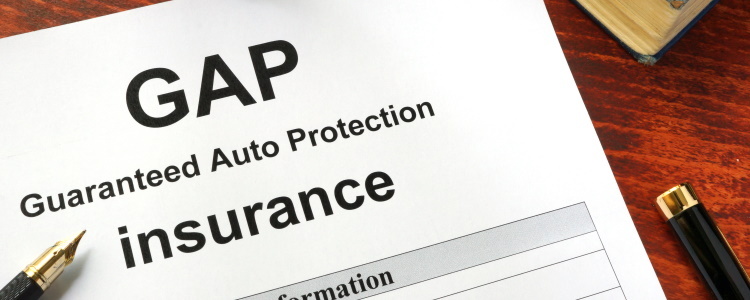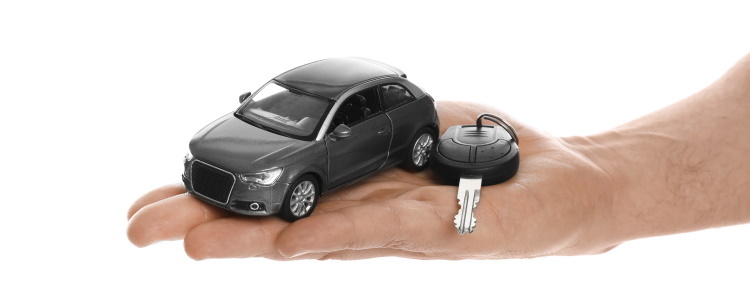Equity and Bad Credit
Trade equity is the difference between what a vehicle is worth and how much is owed on it. And when it comes to trade-ins, the dealer appraises your car and assigns a value to it. They will consider a number of factors, including its age, mileage, and condition, among others.
You can get an idea of your trade-in's value on websites like Edmunds or Kelley Blue Book. They have trade-in appraisal tools that can give you an approximate value. But you should keep in mind that these are only guides.
The next step is determining its trade equity. If your car is paid off, its entire trade value can be used as part (or all) of your down payment. But if its trade value is less than what you still owe on the car, then the difference is known as negative equity.
Why Do I Have Negative Equity?
 New cars tend to lose a lot of value after they’re driven off the lot – typically around 10% within the first month. Within the first year, a new vehicle’s value often decreases by 20%. This is depreciation – a reduction in value. Because depreciation happens so fast on new cars, you could find yourself upside down rather quickly.
New cars tend to lose a lot of value after they’re driven off the lot – typically around 10% within the first month. Within the first year, a new vehicle’s value often decreases by 20%. This is depreciation – a reduction in value. Because depreciation happens so fast on new cars, you could find yourself upside down rather quickly.
Another common reason for negative equity is a long loan term. If you take out a longer loan to lower your monthly payment, you risk even more time with negative equity (and paying more in interest), as your payments won’t be enough to keep up with the depreciation.
If you were to try to sell the vehicle, you probably won’t get what you owe. While in the case of a total loss, most auto insurance companies only pay out the actual cash value of the car, and not what you owe.
No matter how your vehicle got flipped upside down, figuring out how much negative equity you have can help you decide what to do next. Negative equity happens when the actual value of your car is less than what you owe on it. If you have a vehicle with a value of $15,000 but you owe $20,000, you have $5,000 in negative equity.
Consider GAP Insurance
If you’ve recently purchased a new car and you find yourself upside down, this is rather common. New vehicles depreciate quickly and it can be difficult to maintain equity.
To protect yourself, consider purchasing GAP insurance. You can buy GAP insurance at the dealership or through your auto insurance provider. GAP insurance’s purpose is to protect owners with negative equity by paying off the difference in the event of an accident or theft.
Using that same example from above, if you owe $20,000 on a car and its cash value is $15,000 and it gets totaled, the GAP insurance would pay the $5,000 in negative equity.
If you find yourself with negative equity, GAP insurance could be a great option until you start earning equity again.
Options to Consider When In An Upside Down Car Loan
When your trade-in has negative equity, it hurts your chances of getting approved for a bad credit auto loan. This is because negative equity doesn't just disappear. You either have to pay the difference out of pocket or roll it over into the new loan. And that's IF the lender will allow you to do this.
Lenders rarely allow borrowers with bad credit to trade in a car with negative equity. You are asking them to loan more money than the value of the car you are trying to finance. Combine that with bad credit, and your chances of being approved are typically slim.
Also, keep in mind that rolling over negative equity into a new loan puts you in a bad situation. It means that you will essentially be paying finance charges on two loans at once. Because poor credit auto loans come with higher than average interest rates, this can be a very expensive course of action.
So, financially speaking, it is generally wiser to pay off any negative equity out of pocket. If that's not an option, it may be best for you to hold off on your car purchase until you have either paid off or built equity in your current vehicle.
However, there are ways to get out of an upside-down auto loan. Here are some solutions:
- Make extra payments – Paying more each month or making extra payments when you can helps you catch up and start earning equity. Say your monthly payment is $323, but you round up each month to $350. An extra $27 a month for one year is $324 – voila, an extra car payment!
- Negative equity trade-in – This is exactly what it sounds like, trading in the vehicle with negative equity. Using the same example from above, if we take that car worth $15,000, and you owe $20,000, you could trade it into a dealership and see what they can offer. If the dealer offers you $16,000, you could pay the $4,000 out of pocket and get out of the hole. Or, if you don’t have the cash to pay off the $4,000, you could roll that amount over onto your next auto loan.
- Roll over – Another option is rolling your upside-down car loan into another car loan. This would mean financing another vehicle and adding the negative equity of the upside-down car to a new loan. This means a higher monthly payment and paying more in interest charges.
- Refinance to a shorter term – This may be your best option. It means you would be making larger payments each month, but you could also end up lowering your interest rates, too.
Ridding Yourself of a Vehicle with Negative Equity
Figuring out where to go when your loan is suffering negatively can be a hair-pulling experience. The good news is there are people available to help you today. Start now by completing our quick and easy online auto loan request form to get in touch with our team of professionals that can get you on the right track today. When it comes to your financial struggles, we are here to lend you a helping hand. Don't worry about having to deal with an upside-down loan on your own. We work with a nationwide network of dealers that can help you today with their many options and experience.

 New cars tend to lose a lot of value after they’re driven off the lot – typically around 10% within the first month. Within the first year, a new vehicle’s value often decreases by 20%. This is depreciation – a reduction in value. Because depreciation happens so fast on new cars, you could find yourself upside down rather quickly.
New cars tend to lose a lot of value after they’re driven off the lot – typically around 10% within the first month. Within the first year, a new vehicle’s value often decreases by 20%. This is depreciation – a reduction in value. Because depreciation happens so fast on new cars, you could find yourself upside down rather quickly.













